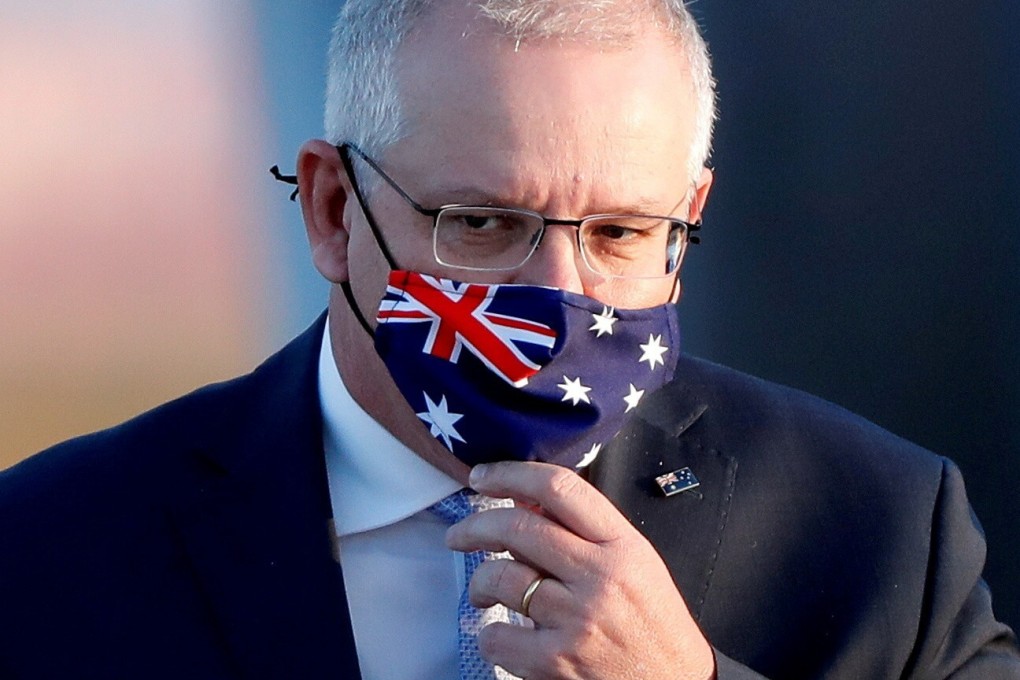Advertisement
Australian PM Morrison calls for WTO reform to punish ‘economic coercion’, in veiled reference to China trade dispute
- Speaking before the G7-plus summit in Britain, Morrison is rallying support for the modernisation of global trade rules and ‘freedom over authoritarianism’
- His remarks come amid a deterioration in Sino-Australian relations that has seen Beijing slap restrictions on billions of dollars of Australian exports
Reading Time:4 minutes
Why you can trust SCMP
21

Australian Prime Minister Scott Morrison has called for an overhaul of global trade rules to better punish economic coercion, in a veiled reference to the bitter trade dispute with China that has disrupted Australian exports such as beef and wine.
Speaking on Wednesday, ahead of his attendance at the “G7-plus” meeting in Britain this weekend, Morrison said he would rally international support to buttress the role of the World Trade Organization (WTO) and “modernise its rule book where necessary”.
“A well-functioning WTO that sets clear rules, arbitrates disputes objectively, and efficiently penalises bad behaviour where it occurs – this can be one of the most powerful tools the international community has to counter economic coercion,” Morrison said, without mentioning China by name.
Advertisement
“Where there are no consequences for coercive behaviour, there is little incentive for restraint.”
The prime minister said like-minded countries needed to work together to defend an international order that favoured “opportunities for all” and “freedom over autocracy and authoritarianism”.
Advertisement
Advertisement
Select Voice
Select Speed
1.00x